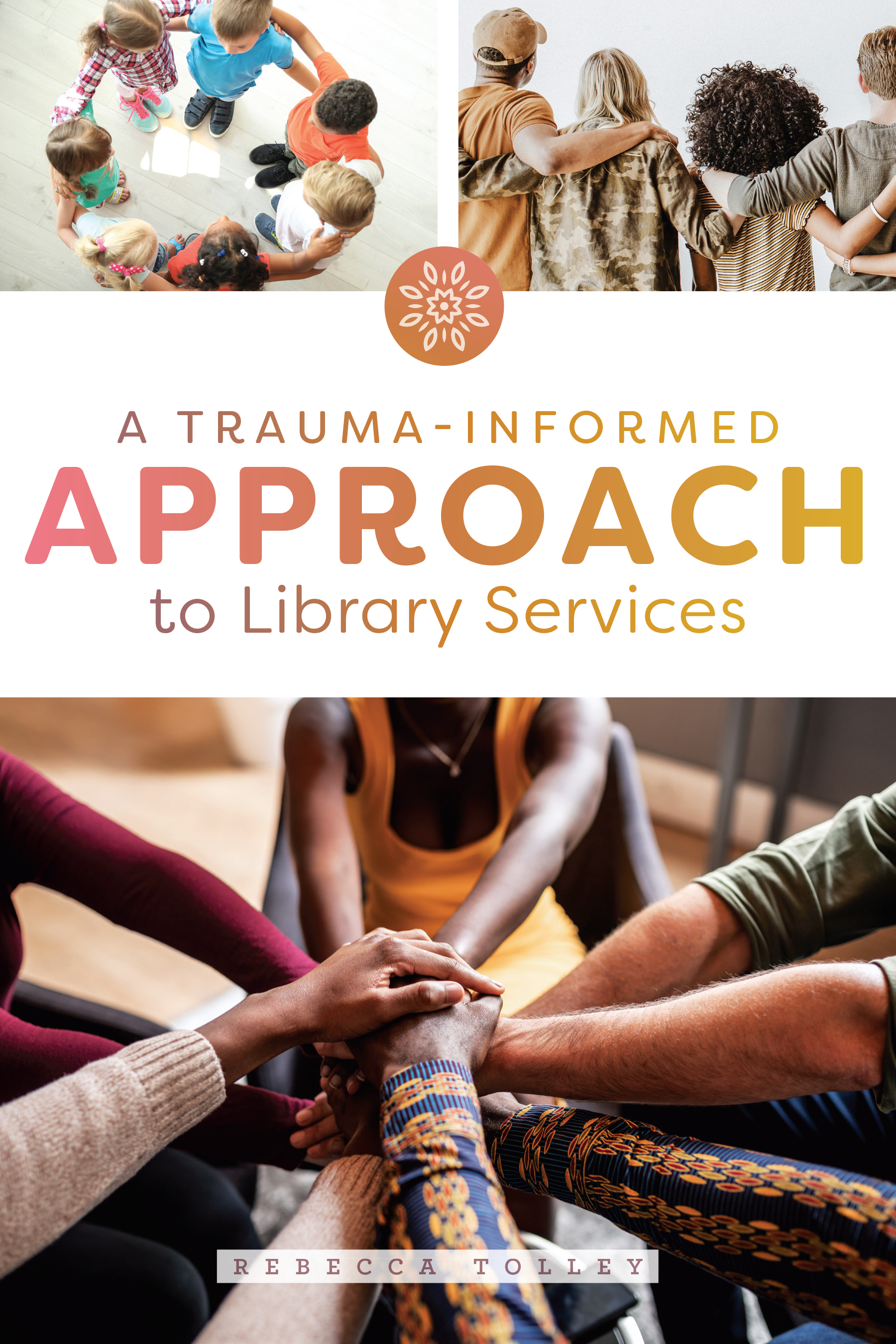Primary tabs
You don't need to be an ALA Member to purchase from the ALA Store, but you'll be asked to create an online account/profile during the checkout to proceed. This Web Account is for both Members and non-Members.
If you are Tax-Exempt, please verify that your account is currently set up as exempt before placing your order, as our new fulfillment center will need current documentation. Learn how to verify here.
- Description
- Table of Contents
- About the author
- Reviews
We are only now coming to terms with how common trauma really is; a landmark Kaiser study that surveyed patients receiving physicals found that almost two-thirds had experienced at least one form of abuse, neglect, or other trauma as a child. Though originating in the fields of health and social services, trauma-informed care is a framework that holds great promise for application to library work. Empathetic service, positive patron encounters, and a more trusting workplace are only a few of the benefits that this approach offers. In this important book Tolley, experienced in both academic and public libraries, brings these ideas into the library context. Library administrators, directors, and reference and user services staff will all benefit from learning
- the six key principles of trauma-informed care;
- characteristics of a trusting and transparent library organization, plus discussion questions to promote a sense of psychological safety among library workers;
- how certain language and labels can undermine mutuality, with suggested phrases that will help library staff demonstrate neutrality to patron ideas and views during information requests;
- delivery models that empower patrons;
- advice on balancing free speech on campus with students’ need for safety;
- how appropriate furniture arrangement can help people suffering from PTSD feel safe;
- guidance on creating safe zones for LGBTQIA+ children, teens, and adults; and
- self-assessment tools to support change toward trauma-responsive library services.
Using the trauma-informed approach outlined in this book, libraries can ensure they are empathetic community hubs where everyone feels welcomed, respected, and safe.
Preface
Part I Adverse Childhood Experiences and Trauma-Informed Care
Chapter 1 Trauma and Adverse Childhood Experiences
Chapter 2 The Trauma-Informed Approach to Service
Chapter 3 Trauma-Informed Care and Libraries
Chapter 4 The Trauma-Informed Library Environment
Part II The Six Guiding Principles of Trauma-Informed Approaches
Chapter 5 Safety
Chapter 6 Trustworthiness and Transparency
Chapter 7 Peer Support
Chapter 8 Collaboration and Mutuality
Chapter 9 Empowerment, Voice, and Choice
Chapter 10 Cultural, Historical, and Gender Issues
Part III Creating a Culture of Trauma-Informed Care in Libraries
Chapter 11 Assessing Organizational Readiness
Chapter 12 The Library as Sanctuary
Chapter 13 Becoming a Trauma-Informed Library Workforce
Chapter 14 Planning for Trauma-Informed Services
Appendix: Adverse Childhood Experiences Questionnaire
References
Rebecca Tolley
Rebecca Tolley is a professor and librarian at East Tennessee State University. She coordinates the Sherrod Library’s research consultation service. She speaks and publishes on topics such as organizational culture, customer service, and cultivating empathy in library workers. She co-edited Generation X Librarian: Essays on Leadership, Technology, Pop Culture, Social Responsibility and Professional Identity (2011) and Mentoring in Librarianship: Essays on Working with Adults and Students to Further the Profession (2011). Her writing has appeared in anthologies, several library journals, and numerous reference works.
"At its core, the trauma-informed service model is user-centered: it attempts to identify with patrons and to imagine the experience of utilizing the library from their point of view ... Tolley provides clear and succinct chapters that are full of concrete information about not only what needs to be addressed as libraries move toward a trauma-informed approach but also how to accomplish such a complex task."
— Public Services Quarterly
"Very thought provoking. While specifically aimed at public librarians, this information applies equally to other library settings."
— Journal of Hospital Librarianship
"A welcome addition ... This book is particularly relevant in light of the current pandemic and social unrest, a time where more library users may be experiencing trauma. The information provided will help libraries improve customer service for all that use and experience their space. The layout of the book is easy to follow, and the sections and chapters are well organized. The author showcases several libraries that have implemented changes to make their spaces more inclusive for all."
— Serials Review
"As a deadly pandemic grips the world, this book couldn’t have come at a better time as we deal with a collective ongoing traumatic event. The trauma-informed approach (TIA) changes how we view ourselves, our organizations, and our patrons through centering empathy, compassion, and education about trauma along with its multitude of impacts on psychological, physical, and emotional well-being ... Libraries have done a lot of work in this area, but there is much more to learn and do. The onus is on us to know about our traumas, to understand the impacts of our trauma and that of our patrons, and how traumas affect how the work is done. This book serves as a primer for learning and implementing a TIA. Finally, this book can be returned to time and time again, to glean new ideas and deepen the reader’s knowledge base. This is the book if you want to continue to further inclusion, equity, cultural humility in librarianship and resist retraumatization, stigmatization, and othering."
— College & Research Libraries



